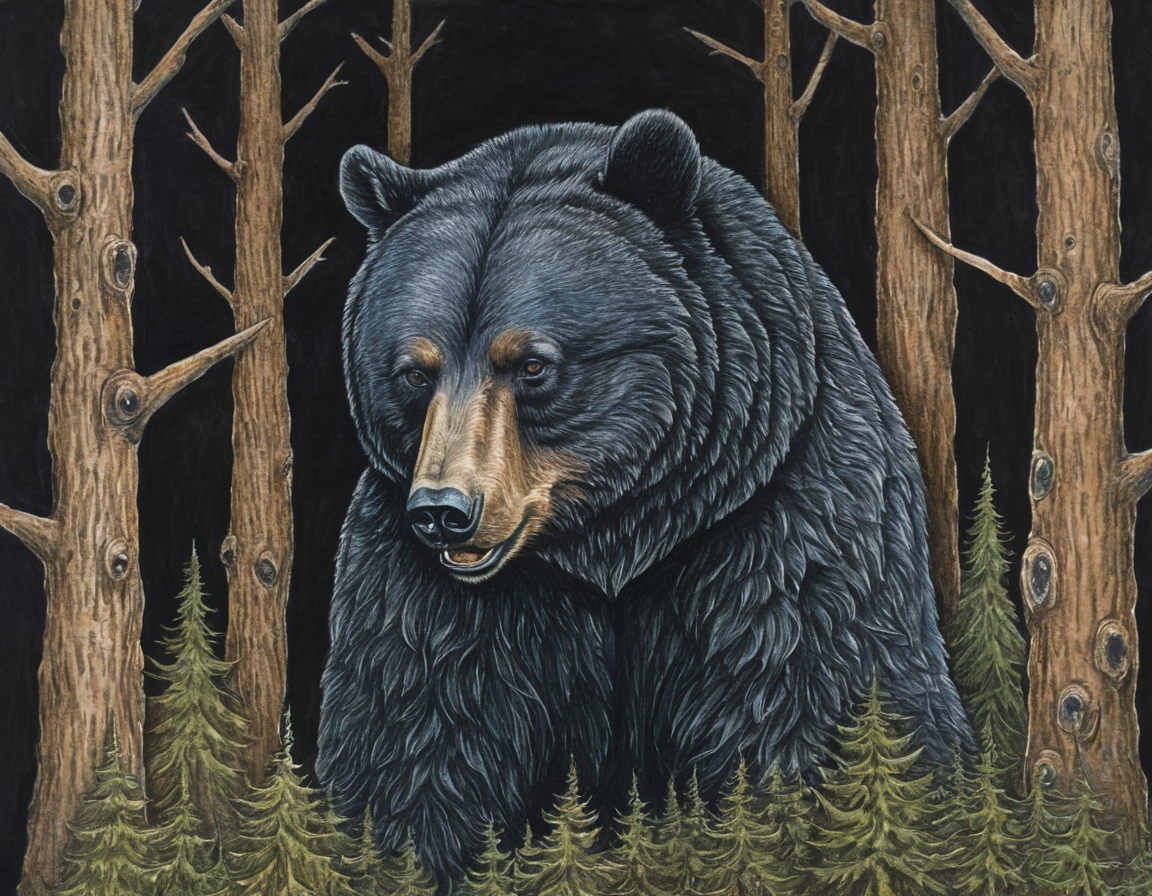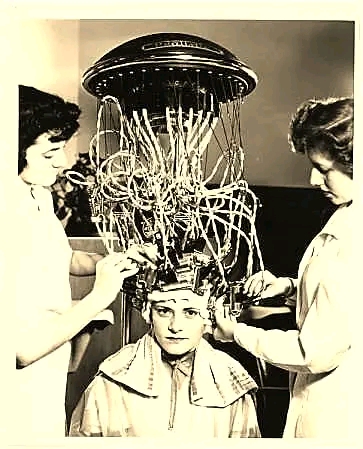it’s better than most of the stuff on Spotify
“Creators of a broken system upset that people have found a way to actually profit from said system”.
Spotify has one of the highest quality services and a monthly price that’s barely gone up in a decade. This shit just leads to them having to raise the subscription rate again if they can’t fix the issue with people clearly undermining the payment model. What the hell is it that you people want?
What the hell is it that you people want?
Keys to Paradise and a new Bentley. Preferably the ones they use at LeMans…
Your comment seems to be about the user/listener experience. The comment you responded to had NOTHING to do with the user/listener experience.
Spotify has some terrible externalities though.
People want the CEO to keep his mouth shut instead of publicly demonstrating his disregard of the art form,
as well as pay artists that create actual music more, and people abusing the system (see the OP) less.i want mp3’s i can put in my car
the highest quality services
What’s you’re definition of quality? Spotify is dramatically less useful than it used to be. So many options taken away shuffling is useless, garbage gets slipped in as a “suggestion”, etc.
Spotify has one of the highest quality services
spotify is a great service for spotify
spotify is a great service for the consumer
spotify is a godawful exploitive pile of manure for artists
It kinda sucks for the consumer too. It’s certainly not the best for the price for the consumer at the very least
deleted by creator
I love YouTube music. I get all the same songs as the other big services, plus free YouTube premium. Between my jam and habit and my quixotic quest to teach myself woodworking, I watch a LOT of YouTube videos.
I switched back to Spotify after google music disappeared.
too much crossover between random youtube videos and actual high quality music
But when you listen to jam bands random YouTube videos ARE the high quality music!
Doesn’t Spotify cap out at like 192kbps? I got sucked into Apple Music once I heard it had lossless music.
deleted by creator
I can absolutely hear the difference between 192 and lossless with any of my too-many-pairs-of nice headphones! Not at all with my AirBudz though.
I can absolutely not tell in my car or my partner’s, despite us both having high-end sound systems (theirs is 2kUSD+ and I can’t even tell in there!)
are you old?
with time it gets naturally impossible to hear those differences
deleted by creator
Bit depth affects noise floor, not frequency range.
You are correct that the noise floor of 16 bit is well within the limits of human hearing, making 24 bit redundant outside of production.
Spotify maxes out at 256k, so you’re just wrong there.
Stupid decisions like paying $200 million for Joe Rogan’s shitty podcast certainly don’t help
Wether you like it or not it’s the most popular podcast in the world (or atleast was at the time) No amount of hate is going to change that.
$200 million is a lot of money for a podcast when your core Business is music streaming.
I believe spotify is the most popular podcast streaming app so even if their core business used to be music it’s not that anymore. Atleast not exclusively. Instagram used to be about photography too. Platforms evolve.
You are correct that Spotify is the most popular streaming app for podcasts, at least in the US, as of March 2023
Providing some link backup for you since folks decided to downvote you for saying something they didn’t like.
Do we know whether they’re making money or a loss on that deal? I remember Joe Rogan’s podcast being really popular
I like the implication here that your phone is so used to you saying Rohan it autocorrected.
Fixed, LOL
Where was Rogan when the Westfold fell?
On DMT, obviously.
I’ve been boycotting that podcast ever since. Such a stupid decision. And if I’m going to use a streaming service, Apple Music suits my needs just fine.
How is this undermining the payment model, do tell?
Spotify bleeds money just like all the other streaming services and is kept alive by dumb investors that think, it will be someday profitable. Maybe they should stop trying to push so hard for podcasts and focus on their core business.
Their core business is built on record labels that always want more and more money until Spotify collapses.
It’s kind of funny how the modern narrative around music streaming never mentions record labels, who in all honesty are the ones who always have been screwing over artists.
Tells you who is doing most of the “talking”
LOL.
Lmao even.
News flash: providing a product costs money!
And the enshittification continues on unchallenged.
It’s time for Lou Reed’s Metal Machine Music to shine.
…But, why?
I can download a white noise app for free, and never have to worry about any advertising at all. Why would I insist on listening to one that’s going to have irregular breaks to tell me that I should use Nord VPN, play Raid: Shadow Legends, or get therapy through Better Help? (Caveat: I actually use Nord VPN, and have for about six years, but I’m probably switching to Mulvad or Proton in a month.)
A lot of people are playing them on TVs with very limited available apps
The wording is a little misleading. A “white noise” podcast isn’t just 80 hours of TV static, it might be a recording of a cafe, a bus station, nature, a storm, etc. not something that’s just generated on-device, meaning it’s gotta be streamed.
There are many free apps that can generate soundscapes like this.
You don’t have to listen to the advertisements at all if you use the right browser and the right extensions.
If there’s a shell, there’s a way
How does this cost any money besides cost of bandwidth?
They pay the author, and white noise is streaming all night.
How is white noise even something that someone can have a license on?
Shouldn’t it be identical no matter where you listen to it and therefore impossible to get money from?
If it’s well made truly random noise, then it would never be identical. That’s why it’s costing Spotify so much in the first place. Compressors can’t reduce storage and bandwidth use because it’s always different. Even if the human ear can’t discern the difference.
This galaxy brain over here making me think about compressing after encryption vs compressing encrypted data.
I would wonder if it’s just procedurally generated random noise, can it be said the file has human artistic intent and can it be protected under copyright?
It’s not actually all white noise. It’s stuff like waves crashing, raindrops, etc.
How is white noise costing this much money? Surely the bandwidth isn’t that expensive
And why does Spotify care if they’re paying out white noise creators from the same fun they pay music creators? It’s still time in service right?
At first I thought it was something about it being a worst case scenario for compression algorithms, costing bandwidth.
Someone can correct me if I’m wrong but Spotify doesn’t actually pay a specific amount per stream. Instead they pay creators based on how much people listen to them from the pool of money they have to pay from. So people repeatedly listening to white noise takes away from the pool of money that could go to actual musicians.
Probably having to pay out money to the podcast for the listeners.
Yes but no? A subscriber pays a set amount per month. No matter how much that subscriber listens to music, it’s paid from their monthly subscription fee, right?
So if a subscriber listens to one hour of music versus 10 hours of music, does Spotify pay less royalties for the 1 hour?
Even if they do pay royalties based on listen time, if somebody’s listening to white noise for 24 hours a day, there should be an upper limit to the royalties paid to the monthly subscription right?
I just don’t understand how somebody listens to 10 hours of K-pop every day versus 10 hours of white noise how Spotify is saving money in the second but not the first example
deleted by creator
Exactly, baby’s nursery for us we leave it on.
Don’t they pay music producers/artists/podcasts based on how much people listen to their content? I’m guessing they object because people consume way more white noise due to being asleep. So there aren’t many people who listen to K-pop for 8 hours but lots who do that with white noise. Not to mention if there are any ads you would sleep through them.
You pay a certain amount a month to Spotify.
A percentage of that goes straight to Spotify’s pockets and the rest goes to what you listen to.
If you listen to music all day, and then have a white noise playlist at night, then half of that amount goes to just the one stream and the other half is split between all the others labels of the music you listen to. Without that white noise playlist the music labels would make twice as much money from you.
I get that, but why would Spotify care about that?
Because big labels have power. As Spotify you want to keep them happy more than the little guys. Otherwise they can lobby against you.
Because their platform becomes more desirable for creators. They’ve had issues with this in the past, Taylor Swift pulled all her music from spotify at one point due to the lower than average royalties. That’s a situation they’d like to avoid in the future because it’ll cause people to drop their subscription.
Only reason I could think of is that compressing white noise is very inefficient because of its high entropy. Compression needs patterns and white noise doesn’t really have any.
That would be true for lossless compression. Audio codecs generally don’t work that way.
Yeah, it seems weird. I can see the record companies not liking it because people listening to hours of white noise aren’t listening to music, but shouldn’t Spotify be happy if people are in the app at all? Maybe the issue is that they have more of a subscription model, so make more money when people pay the fee without using the bandwidth, but the white noise podcasts use bandwidth for many, many hours?
The article certainly doesn’t explain it well.
I think that’s exactly it.
People will leave them playing over night etc.
So they are paying a lot more in bandwidth and royalties.
That’s an easy fix. Most music streaming services will time out after 30 minutes with an “are you still listening?” prompt.
This is a terrible idea. I use spotify for music at work and if I had to click a prompt every 30 minutes I might as well be watching YouTube videos.
Honestly I just download the stuff I like to listen to from YouTube using vlc and use the android version of that to just play the group of audio files all on a shuffled loop. Then again, my work asks that phones be in airplane mode in the room I work at (tho is fine with music and Bluetooth headphones, it’s something about interference from the data connection they’re worried about) so I couldn’t use a streaming service for it anyway.
A “sleep timer” feature would be a much better suggestion. Audio streaming is not so network-intensive that we need to build in timeouts
As luck would have it, that already exists in Spotify.
If I have to interact with my phone at any point while I’m driving I’m leaving that service.
This has to be an intentionally bad idea lol, most albums are longer than 30 minutes and this would ruin the flow
As someone who spends 8 hours listening to podcasts every day this sounds like an awful idea
Not just that but due to the randomness of white noise data it can’t be compressed, so the bandwidth is much higher just because of that factor alone. Think 30mb for a white noise file the same length as a 3mb song.
This is the real reason
I find this hard to believe. True white noise maybe, but it doesn’t need to be that for this use case.
I find this hard to believe
Okay.
Surely the bandwidth isn’t that expensive.
Compared to the CPU requirements to generate it locally, it is thousands of times more expensive to stream it.
What is the best and fastest way to generate white noise from your computer?
Do you mean “how do I write a white noise app?” or “what is the best white noise app?”
White noise boils down to generating random numbers and sending it to your audio out. You may want to tweak the distribution to make the noise more pleasant. That shouldn’t be too hard to implement.
For existing white noise apps, IDK I don’t do that. But like, Google knows.
No, I mean for everyone saying that streaming white noise is a waste of bandwidth and resources, what exactly is an easier or faster way of getting white noise than just searching for it on something like Spotify?
Then the question you are asking is “What is the best white noise app?”
YouTube and Spotify have every reason to pull their white noise content. Just Google for “white noise app” and download the first one that isn’t totally sketchy.
So your faster and easier solution is to download an app for something I may need only once?
Cool.
Turning on a fan usually works for me
I see you don’t speak capitalism. Allow me to translate: Spotify is not making (enough?) ads money on independent noise creators. Big record labels are not making any money on independent noise creators. These leeches are outraged that they cannot profit onto those paesants’ work, but they say it like they were losing money (that is not true) because they don’t want to sound like leeches.
deleted by creator
You say noise creators as if there’s creativity involved
I actually don’t even like their “products”, I’m just glad that the leeches are not happy.
I feel like someone listening to white noise wouldn’t simply replace it with Ed Sheeran if the white noise was not available.
they’re the same picture
People play it for their babies at night so Ed sheeran is not missing any cut
That’s not the issue though. There’s a finite amount of money that Spotify pays out based on the amount of subscription fees it is bringing in. That $38 million would be divided up amongst all the other artists if it wasn’t being paid to white noise podcasts.
I’ve listened to some music that is only a few steps away from white noise- atmospheric black metal, dark ambient, etc. Stuff that many people would scoff at and not even call it music. But it was intentionally created, and put out there for people to listen to. Regardless of the quality or enjoyability of the music, it’s unreasonable to draw a line as to what is or is not “sound meant for other people to listen to”.
Just because someone has found a way to make “music” with less effort and doesn’t make it “not music”, regardless of what it sounds like. Hell, one of the most famous pieces of experimental/avant garde music “4’33” is literally silence from the performers and the “music” is the sounds of the environment you are experiencing it in.
If I want to listen to any of these things on Spotify, well, they better pay whoever the rights-holder is that licensed it to Spotify to stream at the agreed upon rate. Spotify, other artists, and (most importantly) their labels can whine all they want. These are the contracts they’ve agreed to and as a subscriber I’ll exercise my contractually-agreed-upon ability to listen to whatever is on the platform for as long as I want. Maybe I’m awake, maybe I’m not, maybe I’m subliminally absorbing the music while sleeping. That’s no one’s business but my own.
That $38 million would be divided up amongst all the other artists if it wasn’t being paid to white noise podcasts.
It would be divided amongst the record labels and distributed to artists as those labels see fit.
So it’s not the user getting screwed, not the artists getting screwed, but record labels ?!
Record labels are getting screwed over by indie artists in a new niche that has exploded
This is 100% a massive W
Hopefully in accordance with their contracts with artists
Yes, those famously equitable contracts with artists, we’ve all heard legends of their great generosity.
I mean, yes…unfortunately those contracts have always been very exploitative for all but the top music acts.
famously top artist taylor swift had a very great situation with her contract, she just decided to re-record her entire discography for funsies. like when you re-read a book.
So someone creates an ambient noise track, people enjoy the ambient track, and the person who created the ambient track gets paid. I don’t see the problem.
deleted by creator
So what? Of absurdly the whole user base of Spotify got into white noise overnight and ditched music and voice podcasts, where’s the problem?
Users still pay for the premium/family subscriptions, and it’s only fair that creators of the content most listened to are rewarded proportionally.
deleted by creator
Spotify should do a lot of things differently. However as long people pay they won’t
Are we going to try paying artists by the level of effort it took to create a track?
RIP the royalties for Daft Punk’s “Around the World”.
Are you trying to say that took no effort? Instrumental went hard and the talkbox would have taken some time to develop progression. Especially in the 90s, where digital music technology wasn’t widely available. Today, a song like that would be no big deal but at the time, “Around The World” was much ahead of its time.
That is far more complex than you would imagine, as is most Daft Punk music. Their sampling is pretty amazing. They do things like take nanoseconds-long samples and put them together into something musical. There are breakdowns of their songs on YouTube and it’s very impressive stuff.
Man, I never manage to keep up with the lyrics in that song
I’m not sure you understand. Premium users still hear ads on this content. There are free open source apps that generate the same noise without ads.
White noise is literally just this: https://en.wikipedia.org/wiki/White_noise
Thanks but I’d rather patch the apk so there are no ads and jack up their bills
I know that. But so what? There’s YouTube videos of guys making half-decent-sounding techno tracks in minutes, and on the other hand some artists spend months on a single track. If people listen to their tracks, they get paid, regardless of how hard it was to produce.
This is that principle taken to it’s logical extreme: tracks that are effectively effortless to produce. But that…doesn’t really change anything, does it? Aside from the fact that the ‘artists’ should expect a hell of a lot of competition (including from Spotify).
So you didn’t read the article posted by *checks notes* you?
Besides, why should you get to decide who Spotify pays out to? Why are you so worried about whether a giant corporation makes more money?
Why are you so worried about whether a giant corporation makes more money?
Tbf there are a shitton of severely underpaid independent artists on Spotify that make a laughable amount of streaming revenue. They’d at least somewhat benefit from a higher $ / stream rate
So what? They wouldn’t be bitching if people didn’t want that kind of content. Most media is junk. I don’t really see how this is unique?
You could say they had the audacity to do it
White noise it’s not copyrightable. So, anyone can make a copy, including Spotify themselves. They could “pirate” all the white noise podcasts and redirect them to something they own. Problem solved.
Well then, from a purely business pov, it seems that what spoitfy should do is wipe these white noise casts, post some of their own (possibly from a subsidiary) and watch that extra 38mill roll in
Not podcasts, but Spotify does curate white noise playlists just like they do other music playlists.
I listen to either Night Rain, Dreamy Vibes, or Floating Through Space some nights.
What problem? There was never a problem.
If you are a Spotify exec, there is a problem.
If you are an indie musician who sees your payout being reduced because Spotify says they need to pay white noise podcasts, there is a problem.
If you believe that this is a zero-sum game and Spotify prints money like magic, there is no problem.
No one should care about a spotify exec. This includes their parents and wife. Everyone who creates audio projects for spotify should be paid. This includes musicians and creators of ambient noise tracks. People like those tracks, they are popular, they should be paid. It’s not a difficult concept. Make a product. Distribute the product. Get paid for the product. You perception of the products relative value compared to other disimilar products in the same file format, is about the least relevant thing in the world. Even if you don’t think the product represents enough “effort” to be considered equal.
All of this is crazy.
I didn’t say anything about “value”, I said about copyright.
If it is copyrightable, then the original creator of the concept should have rights, and the clones should be considered plagiarism.
If it is not copyrightable, then it doesn’t matter who is the author, and Spotify can just do their own.
All that, and we haven’t even mentioned that Spotify can just change the terms of service and get rid of the white noise podcasts. They are no obligated in anyway to keep a creator that is not worth the business.
I don’t think you know what a zero sim game is…
All you’re saying is that different tracks/shows are competing for attention, and white noise is doing well in that competition. You could make the same argument about any genre.
Country music is taking a portion of the income that white noise could get paid. Therefore remove all country music from sp0tify.
There have been claims inside youtube against white noise videos, so at least in their privately managed rights system, white noise is fair game for diverting $ from the poster of the content.
From the article: “Once Spotify realized how much attention was going to white noise podcasts, the company considered removing these shows from the talk feed and prohibiting future uploads while redirecting the audience towards comparable programming that was more economical for Spotify — doing so, according to the document, would boost Spotify’s annual gross profit by €35 million, or $38 million.” That doesn’t sound like it’s costing them $38 million, it sounds like they are speculating they COULD make $38 million. I was confused as to how they would be losing money.
Fuck corpo
Next: Not Raising Subscriptions to $100/month is Costing Spotify More Than 1 Billion Dollars per Year.
So the problem is that white noise doesn’t compress very easily.
Compression algorithms are generally designed to reduce noise; if you have something that’s extremely noisy it’s really hard to compress because that’s not what the algorithms were designed to do.
This means that these podcasts take up more space, which means they use more bandwidth than an equivalent non-white-noise solution.
A middle ground would be banning these “podcasts” and then having a white noise generator built into the app. The white noise generator would run locally on your device (very easy to make white noise) and wouldn’t cost any bandwidth at all.
They should just do it procedurally on the fly. because after all there was probably some algorithm that generated those all these and saved to a file. Just cut the file…
I’ve wondered for a while now why so few devices seem to generate it on the fly. Even Google Home and Alexa devices seem to play a 1 hour long file that fades out and in. The older, standalone “sound spa” units played a loop a few seconds long, which bothered some listeners who could hear a pattern due to the loop (maybe due to compression artifacts). I imagine it’s probably just computationally more expensive to generate it on the fly, rather than playing a file, but I also suspect that it’s also just companies pushing out the minimum viable product, and looping an audio file is easiest - especially if the device is already designed to play music, or other audio files like “ocean waves” and “babbling brook.”
To this end, one of the pixel phone launches had a website with a really good background idea, which was looping so nicely on the website that I thought I’ll download it and use it myself but it loops so badly on their own bedtime sounds in the clock app and ytm that it’s just a terrible experience, I never tried it in VLC though
Because marketing doesnt want to ask engineering and think they’re brilliant when they come up with their own solution.
And when engineering tries to explain the downsides marketing gets mad like they’re being insulted.
I can totally hear a pattern overlaying the white noise sound in my kid’s white noise machine. The sound of the pattern varies based on the level of battery charge, as far as I can tell. I thought it was some kind of unintended noise coming from the circuitry (like maybe bad caps). Given that the underlying white noise sound doesn’t seem to vary based on the state of charge, I am still not sure that the sample length is what causes the pattern, but now you’ve got me super curious to tear the damn thing apart to test the caps.
It’s not just actual “white noise.” It’s many kinds of background noise like nature sounds, etc. Has to be recorded and often edited.
It’s a legit product that makes sp0tify more valuable. They should embrace it but they’re fucking morons who hate both their artists and their audience.
Fuck sp0tify a million times. I really hate them.
Another solution then: automatically download/cache a user’s most frequently played tracks. I know downloading is a premium feature or whatever but they should consider it if it would save them money.
Not just frequently played tracks. Sell me the MP3 or WAV or FLAC file, give most of the money to the artist, and let me transfer the files to any device I want. Anything less is too restrictive.
What do you recommend to me so I can easily download and discover music that’s not spotify. You hate them but it seems they’re the top of the game right now
pandora has a really good recommendation algorithm. but for downloading? I recommend Deezer. you can download music with deemix-gui to download to mp3, wav, flac
Bandcamp has recommendations
Allmusic.com has “similar artists” and browse-by-genre and -style (and mood and theme etc)
Everything you listen to on YouTube sends you down a new rabbithole
Discogs.com has recommendations
Allmusic is 100% my favorite place to find new recommendations. I get to actively hunt instead of being fed by an algorithm (though they have too many ads now).
If you absolutely must be a $p0tify zombie who is mentally unable to find recommendations literally everywhere else in our music-obsessed world then you can still buy the albums you like to actually support the artists instead of basically pirating through a big tech app.
Youtube music is pretty good on recommendations and its free with youtube premium so i think its a vastly more valuable service. (Or just use music revanced and get it for free)
For streaming services like Spotifiy, whitenoise does not use more bandwidth than any other podcasts, songs etc.
This is because they are usually using lossy compression which will compress the audio with a specified average bitrate, so e.g. 160 kbits. This means the final audio stream is about the same size no matter what content you’re listing to. This would only matter for streaming sites like Tidal that use lossless compression to deliver a identical bit stream. And even then, the best lossless compression algorithms only safe about half the bitrate, so worst case the audio stream would be twice the size.
Also with modern lossy audio compression algorithms like opus, people will struggle to hear any difference with most kind of audio (including white noise), even in A/B tests. With lossless compression you don’t have a identical bit stream to the source material, but with high enough bitrates it is good enough that people won’t hear a difference.
I agree though that a white noise generator in the app would be a nice feature to save some bandwidth.
Can’t Spotify make their own in-app white noise (generated locally rather than streamed), and push it to the top of their own search results for “white noise”?
They are using the term “white nose podcast” as an (intentionally oversimplified) term to include all podcasts that people use as a background soundscape. This includes sounds of nature, cafes, etc.
They could still generate these more economically on the client. Download a set of samples and the algorithm that generates noise out of them. Or just the algorithm, if no samples are required. If someone listens to this for more than a few minutes, it may already pay off, depending on the size of the samples.
In corporate math any money you’re willingly not making is a loss. No it’s not rational, it’s all about justifying the worst things for profit.
Same reason people lie by claiming piracy loses money
Yea, I hate when opportunity cost and loss are conflated.
Opportunity cost will be the death of our current system IMO.
Buying up housing, hiking subscription prices because Oooh We Can Make More Money, They Will Pay For It Anyway
And piracy. Most people who pirate had no intention of being customers to begin with… and others will become a customer if the price is right.
others will become a customer if the price is right.
This is me 100%. I was a huge pirate back in the day. As streaming services grew, I slowly stopped pirating. Netflix and Hulu had enough content to keep me entertained for $20/month. Now there’s too many streamers, commercial free prices are rising close to $20 each, and each service only has a handful of things I want to watch. The open water is looking more tempting every day.
YARRRRR
The convenience is the issue for me. There should be minimal friction between me and the movie playing. For a while, around 2010-12, Netflix and also the pirate streaming sites had it right. Things worked like butter, it was beautiful. For a few years, the legit streaming sites got good too but then corporatism ruined it. All the distributors yanked their stuff from Netflix, rolled out half baked apps three years too late, filled them with b movies and a few out of date AAA titles, and basically attempted to make the case that streaming was bad and you should pay for cable and go to the theater.
So I sail the seas more than ever.
oh yeah. I stopped pirating during the golden age of Netflix because it was just more convenient to pay and stream. Now piracy has become the easiest way to get new content again.
Exactly. They had a sweet spot for a tiny slice of time. If they had kept that going it would be all good.
Come join us ye scaleewag. Thar be free booty across the bay in all directions.
Yarg, I came for the booty and never left!
Personally I get lost in the weeds whenever I look at pirate communities. I was considering a “debrid” service for ease of use but then got hit with “they don’t seed those are super bad” and was told to look into a seedbox, and get invited into trackers, and get stremio, and buy a personal server…
Lol I’m probably overcomplicating things for myself but sheesh my head spins when I get into this stuff.
I just use free streaming sites. In some circumstances pirating is the only way to way to watch the highest quality version of the content. For example, Star Trek: Deep Space Nine was AI upscaled to HD by fans after the studio said it was “too expensive” – so pirating is literally the only way to watch it on a modern TV without feeling like you need eyeglasses.
Honestly, the old Bay and a vpn is all I use. The top 100 hd movies alone is worth a peek every few weeks to see what pops up.
For me it’s not even about price. I only (theoretically!) pirate if I cannot buy the album anywhere. I don’t pay to stream, but I definitely pay to buy so I can listen on my chosen device.
Big production companies don’t want to make their music or movies available for easy use. You have to jump through hoops and stream on some annoying platform rather than pay to download and play wherever you want. Soooo… they don’t get my money. They don’t want my money.
Opportunity cost is still a cost, and this article is about “costs”.
First and foremost the headline is intended to make it sound like Spotify is losing that money. Just look at the comments here and you can see that it’s very commonly misunderstood.
That said, opportunity cost is considered an irrelevant cost.
A relevant cost deals with actual cash flow, and opportunity cost is vapor because it doesn’t actually hit the ledger in any way. It’s nothing more than a way to express potential revenue changes, which are really just educated guesses.
If opportunity costs were meaningful at all then every business would be losing trillions of dollars.
If they block the stuff people like, won’t they lose the revenue brought in by those people?
Only of those people subscribed to Spotify to listen to white noise. I suspect it’s a side effect…
A side effect of what? I’m really not following sp0tify’s problem with this. If people are listening to it then people are hearing the advertisements. How would they make more money without these popular streams?
I suspect that most people don’t subscribe to Spotify to listen to white noise but other music. So they might not lose a lot of revenue because white noise is not their core value proposition.
But in those times when a user wants white noise, and if sp0tify doesn’t provide it, are we sure they’re going to listen to something else on sp0tify rather than listening to white noise from another provider?
It just seems ridiculous to deny listeners something they seem to really like that you’re already providing.
Streaming and hosting white noise on their servers costs them money, most people who are using these podcasts probably just do it while they’re asleep and happen to have a spotify subscription. These people aren’t going to cancel a subscription because they need another app for white noise.
Spotify could add a generator for white noise soundscapes to their app, but there are countless applications that do this already for free, including open source options. If they aren’t giving money to people uploading soundscapes, they can take more money from monthly subscriptions themselves and give more to artists, increasing their profits and making their platform more desirable than their competitors, which has been an issue for them in the past with criticism from major artists and indies alike.
Overall these noise streams exist to game the system by getting people to play for a long time on content that’s probably just made by hitting the play button on a generator app written by someone other than the uploader, and it’s likely the only reason it happens is people don’t want to download an additional free app for that task
You’re making a lot of assumptions. If people are paying for sp0tify, let them listen to what they choose (within the restrctive enclosure of a streaming app). If advertisers are paying per play, then they’re paying sp0tify when people stream white noise.
Sp0tify is pirating. That’s bad enough. But now they want to dictate what you’re allowed to pirate. Gross.
Hilarious, they’re getting ad revenue and engagement, that’s all they should worry about and keeping Joe Rogan pumped full of his not-drug drugs so he doesn’t go totally fucking nuts.
It costs them $38M and earns them $200-300M in return
I don’t understand how people listening to podcasts could possibly cost a podcast platform money. It feels an awful lot like if people consume your product actively and you lose money then maybe you just shouldn’t be a business.


































